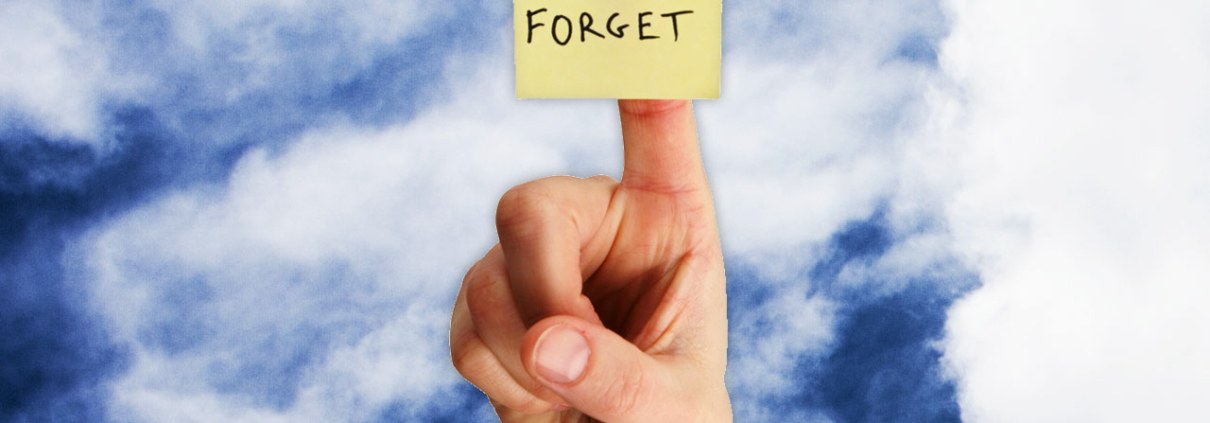Resilience When We Would Rather Not Remember
Part of a yearlong series on resilience in Jewish spiritual life.
It’s just a few weeks until Rosh Hashanah. The Jewish season of teshuvah (repentance, repair, return) is upon us. And of course, what we repent, repair and return (to) depends exquisitely on what we remember.
Truth be told, there are some things I’d rather not remember. I’d rather not remember who hurt me, or whom I hurt, or every time I said or did what I shouldn’t, or every time I didn’t say or do what I should. I’d rather not remember most of the news these days.
A little escapism (even selective amnesia) is a tried and true anti-hurt mechanism. (How often were you on social media today?) But escapism and amnesia aren’t long-term resilience strategies because ultimately, they don’t work. Consciously or not, we remember more than we may want. And ultimately, that’s for the good: the Jewish High Holy Day season is transformative only in proportion to what we let ourselves remember and feel.
This week’s Torah portion (Ki Teitzei) is all about memory, though not on the surface. On the surface, it’s all about stuff gone wrong, as if ripped from today’s headlines – war, social plunder, wayward children, mistreatment of women, dishonest business practices, corruption, a fraying social safety net, environmental degradation and more. Only near the end do we read about memory: “Always remember that you were slaves in Egypt” (Deuteronomy 24:22); “always remember what Amalek [Torah’s euphemistic others] did to you” (Deuteronomy 25:17): “do not forget” (Deuteronomy 25:19).
Are we condemned always to rehash stuff gone wrong? Must we always carry past bondage around like badges of honor? Must we always remember every time we were wronged? Reading these verses, Torah seems to answer yes.
I understand this call to remember a bit differently. The spiritual intention, I like to think, is that we remember precisely not to repeat and not to re-live. The best we can hope of life’s hurts is that they both strengthen us and soften us – strengthen us to carry the memory, and soften us so that we’re more empathetic to others’ hurts and so we don’t lash our hurts on others. So one measure of our spiritual (and collective social) resilience is the extent to which we harness those lessons for real, without being steeled by them.
But this hope goes only so far.
Last week, when a Pennsylvania grand jury issued a 900-page report about sexual abuse and official cover-ups in the Catholic Church, one victim’s response was heart rending. CNN quoted her as saying, “When I hear the word ‘God,’ I get flashbacks of abuse.” She remembers, and she re-lives – and she’s hardly alone. How many women re-live sexual abuse? How many soldiers relive traumas of war? How many adults flash back to child abuse? How many of us experienced religion and spirituality in ways that we wish we didn’t remember but do, driving us to steel ourselves to disappointments we experienced and thus also future possibilities?
Maybe Torah recounts stuff gone wrong in society (and still going wrong in society), before delving into the importance of memory, precisely to remind us that we keep reacting to memories unless and until we do the deep work of healing all that can be healed. Whether it’s our individual hurts and resentments, our societal stuff gone wrong, the journey to healing comes not in amnesia but through the straits of memory.
Resilience, it turns out, is the power to undertake this journey of memory and ultimately remember compassionately without re-living hurtfully. Some will need professional support over a lifetime; for others healing might begin with just a phone call. This time of year is when we re-commit to the path of memory with the purpose to repair, to heal, to forgive, to do wise justice in the world – and thereby to better the world in every way that hearts and hands can.
– Rabbi David Evan Markus






 Evan J. Krame was ordained as a rabbi by the
Evan J. Krame was ordained as a rabbi by the